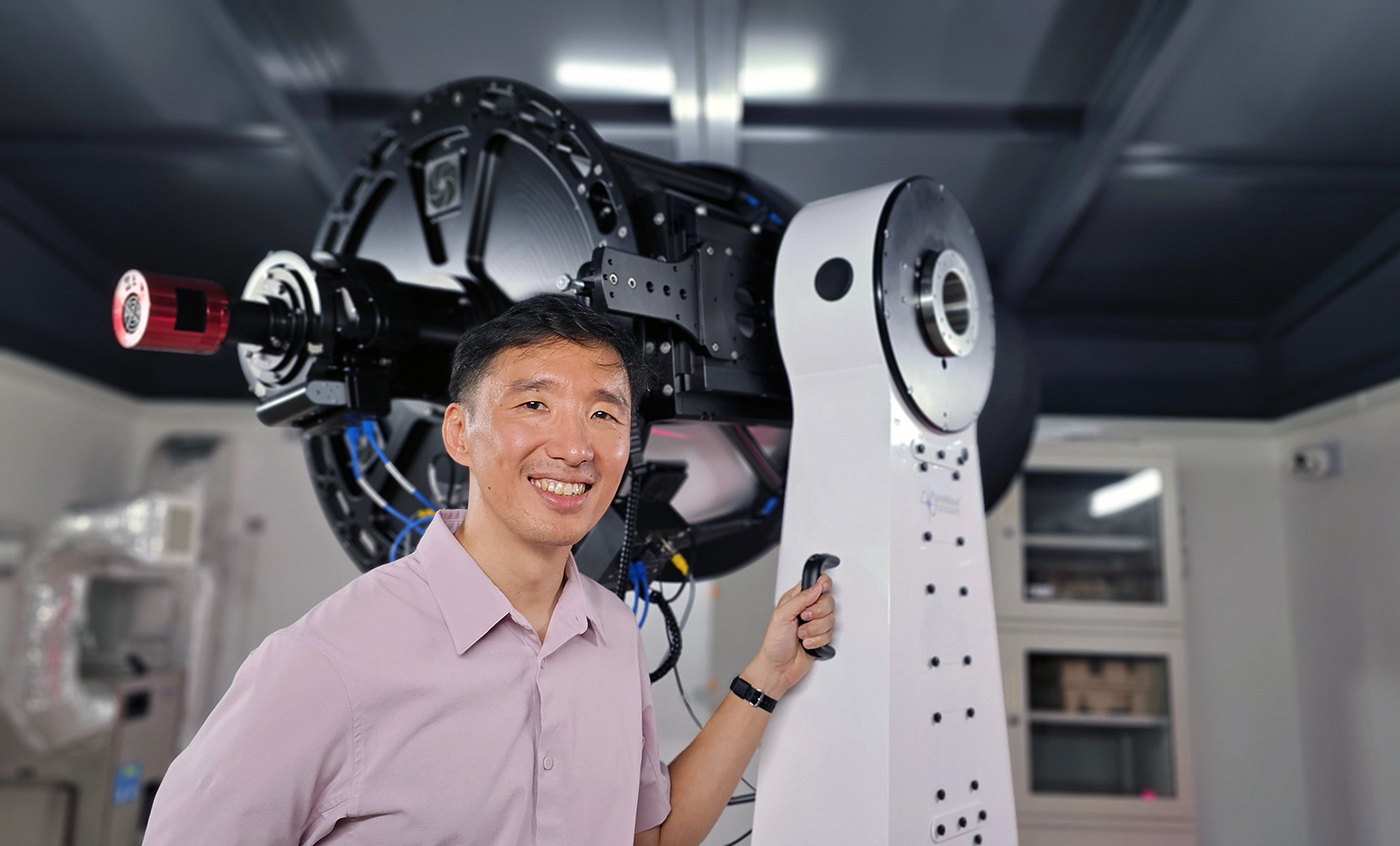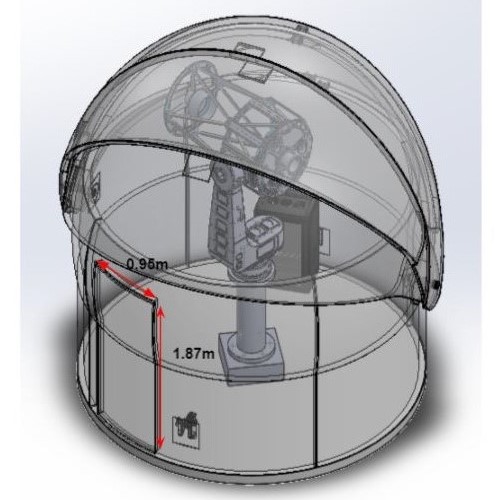Highlights
CQT PI named Distinguished International Associate by the UK's Royal Academy of Engineering
 CQT's Alexander Ling at the optical ground station his team operates at the National University of Singapore to communicate with quantum satellites.
CQT's Alexander Ling at the optical ground station his team operates at the National University of Singapore to communicate with quantum satellites.
CQT Principal Investigator Alexander Ling has been named a Distinguished International Associate (DIA) by the UK’s Royal Academy of Engineering. Alexander is one of just ten researchers around the world selected for the award in 2024.
He receives a grant to support collaborations with UK scientists on quantum space technologies for one year from May 2024. The Academy had invited applications for the DIA with a focus on ‚ÄúTechnologies for the Future‚ÄĚ.
The Academy describes the DIA programme as being ‚Äúfor excellent international engineers who are at the cutting edge of engineering research or innovation, and have existing collaborations or connections to the UK which they would like to intensify‚ÄĚ.
Alexander helped to shape Singapore’s quantum plans as Chief Scientist for the National Quantum Office from 2022 to 2024, and as Director of the Quantum Engineering Programme from 2020 to 2023. Concurrent with his appointment in CQT, he is a Professor in the Department of Physics at the National University of Singapore (NUS).
His proposal to the Academy builds on his strong track record of work in quantum communication and quantum networking, with UK connections.
Entangled in space
Alexander’s group launched the quantum satellite SpooQy-1 in 2019, demonstrating the creation of entangled photons in space. Such technology could enable long-distance quantum links, with entanglement exploited in quantum networks for security or information processing. The DIA grant will support his ongoing project to develop techniques to increase the range over which entangled light can be distributed and work towards an international quantum network.
The research into SpooQy-1 was spun out into the company SpeQtral, co-founded by Alexander and based in Singapore. The startup has raised over S$10 million and has its first satellite launch planned for 2025. The company continues to collaborate with NUS on the design of instruments for its upcoming satellites (SpeQtre and SpeQtral-1). NUS will also support the operations by providing access to an optical receiver on the Kent Ridge campus.
The DIA grant will support Alexander’s existing collaboration with Daniel Oi, an expert in quantum communication protocols from the University of Strathclyde, that date back to the birth of the idea for SpooQy-1.
Specifically, the researchers aim to build an international consortium that will propose standards for satellite quantum communications to stakeholders globally. NUS and the University of Strathclyde signed a Memorandum of Understanding in 2022 to ensure their own optical ground stations could communicate with each other’s satellites. He will also use the grant to strengthen collaboration work with other UK-based quantum teams.
Alexander is also interested to engage with stakeholders in the UK on the responsible use of quantum technologies in space.
‚ÄúThe DIA program provides an ideal forum for me to pursue my research and policy interests in quantum and space technologies and foster international collaborations to unlock their benefits,‚ÄĚ he told the Academy.
DIA benefits
Other awardees in this fourth round of the Academy’s DIA programme span research areas from water safety monitoring to flexible electronics. Alexander is the only awardee in Singapore.
The Royal Academy of Engineering was established in the UK in 1976 and has as its patron His Majesty King Charles III.
As well as receiving funding, the DIA awardees will be invited to participate in events as part of an international network supported by the Academy.









